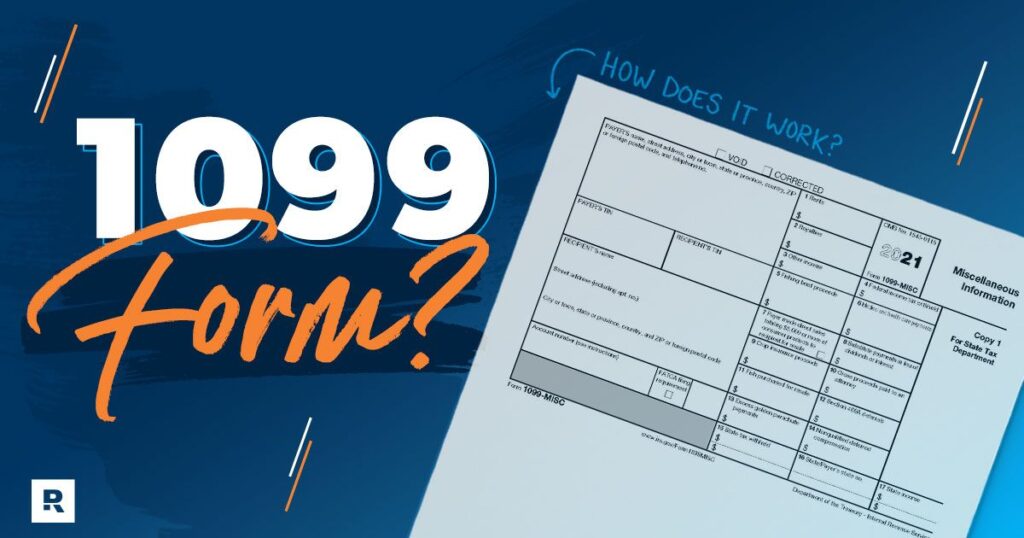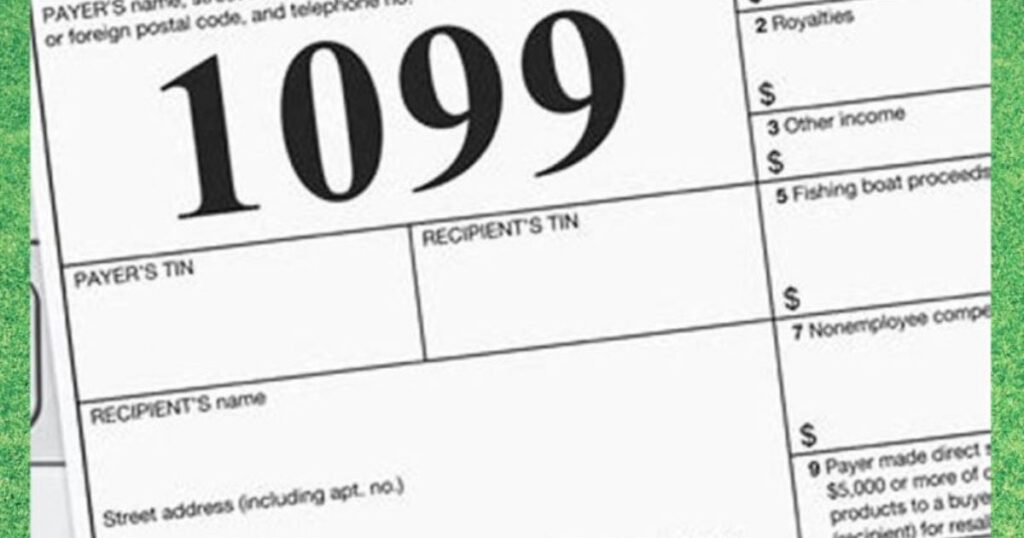Tracking earnings and outlays accurately is crucial for precise 1099 tax reporting in 2024. With increasing complexity in precise 1099 tax regulations staying organized ensures you meet deadlines and avoid penalties. This guide explores effective methods and tools for monitoring your income and expenses throughout the year.
From leveraging financial software to maintaining detailed records you will learn how to streamline your tax preparation process. By implementing these strategies you will not only simplify your tax filing but also enhance your financial management for better clarity and control over your earnings.
What is Precise 1099 Tax Reporting?

Precise 1099 tax reporting involves accurately documenting and reporting all income earned by freelancers, contractors or small business owners, as required by the IRS. The 1099 form, particularly 1099-MISC or 1099-NEC, details payments made to non-employees.
Precise reporting ensures all earnings and deductions are correctly captured, reducing the risk of errors and audits. It involves meticulous record-keeping, timely submissions and accurate data entry to comply with tax regulations and avoid potential penalties.
What 1099 Expenses Should You Track?
When it comes to 1099 expenses, the golden rule is simple. If it is related to your business, track it. Let’s break it down:
- Office supplies
- Professional development courses
- Travel expenses for business trips
- Home office expenses
- Software subscriptions
- Marketing and advertising costs
- Professional services
- Equipment purchases and repairs
The IRS is not psychic. If you do not track it. You can not claim it. So keep those receipts, log those miles and document everything. Your future self will thank you when it is time to file your taxes and you’re not scrambling to piece together a year’s worth of expenses.
The Value of Precisely Monitoring
Precise monitoring of your finances is like having a financial superpower. It is not just about staying on the right side of the IRS. Though that is certainly important. Accurate tracking helps you make informed business decisions, spot spending trends and maximize your deductions. Plus, it is your best defense against the dreaded tax audit. When you have got all your ducks in a row you can face any financial challenge with confidence.
Earnings and Expenses
The hustle and bustle of freelance life. It is easy to lose track of that small gig you did back in January or that bonus a client threw your way. Every dollar counts, so make sure you are recording it all.
It is not just about big purchases. Those small, everyday expenses add up fast. That $5 latte you bought while working at a cafe. If you were meeting a client, it could be a business expense. The key is to develop a system for capturing these costs in real-time. It is snapping a picture of receipts with your phone or jotting down expenses in a dedicated notebook finding a method that works for you and sticking to it.
Typical Problems with Tax Return Submission
Even the most diligent freelancers can stumble when it comes to tax return submission. Let’s look at some common pitfalls:
- Underreporting income: It is easy to forget about that small job you did months ago, but the IRS won’t. Keep a running tally of all income sources.
- Overestimating deductions: That new ergonomic chair might make your home office comfier but unless it is used exclusively for work, it is not fully deductible.
- Missing deadlines: Unlike W-2 employees freelancers often need to make quarterly estimated tax payments. Missing these can result in penalties.
- Incorrect form filing: With various 1099 forms out there (1099-MISC, 1099-K, etc.) using the wrong one can cause headaches.
- Poor record-keeping: When you can not back up your claims with proper documentation you are asking for trouble.
Avoiding these issues often comes down to staying organized throughout the year and not leaving everything to the last minute. Remember, tax season doesn’t have to be a mad scramble if you’re prepared.
How to Keep Tabs on Your Earnings and Outlays

Keeping tabs on your finances does not have to be a full-time job; the key is consistency and using the right tools. Start by setting a weekly finance date, dedicating 30 minutes each week to update your records, and make it a pleasant ritual perhaps with your favorite coffee or tea. Use a dedicated business account to keep your personal and business finances separate, simplifying tracking.
Implement a receipt system physical or digital to organize all receipts in one place. Create expense categories to monitor spending and ease tax preparation. Finally, review your finances monthly to identify trends and potential savings. By maintaining this regular routine. You will make tax time less stressful and benefit your future self.
Apps and Tools for Monitoring Finances
In our digital age, there is no shortage of tools to help you keep your financial house in order. Here are some popular options:
| App Name | Best For | Key Features |
| QuickBooks Self-Employed | Overall financial management | Expense tracking, invoicing, tax estimation |
| FreshBooks | Service-based businesses | Time tracking, project management, client portal |
| Wave | Budget-conscious freelancers | Free accounting and invoicing |
| Expensify | Receipt management | OCR technology, automatic categorization |
| Mint | Personal and business finance overview | Budget tracking, bill reminders, credit score |
These apps can be game-changers, allowing you to snap pictures of receipts categorize expenses on the go and even estimate your quarterly taxes. But remember an app is only as good as the information you feed it. Make it a habit to log your expenses regularly and you will have a powerful ally come tax time.
Self-Employment Tax Estimator Understanding
Self-employment tax can be a nasty surprise if you’re not prepared. It covers your Social Security and Medicare contributions – something your employer would typically handle if you were a W-2 employee. As of 2024, the self-employment tax rate is 15.3% of your net earnings.
Here is a quick breakdown:
- 12.4% for Social Security (up to the wage base limit)
- 2.9% for Medicare (no wage base limit)
Using a self-employment tax estimator can help you avoid sticker shock. These tools factor in your income and deductions to give you a ballpark figure of what you will owe. It is not exact but it is a whole lot better than flying blind.
Pro Tip: Remember, you can deduct half of your self-employment tax when calculating your adjusted gross income. It’s like the IRS giving you a little break for being your own boss.
Estimating and Paying Taxes in 2024
In the world of 1099 work, you can not just set it and forget it when it comes to taxes. The IRS expects you to pay as you earn. That means estimating and paying your taxes quarterly. Mark your calendar for these important dates:
- April 15, 2024
- June 15, 2024
- September 15, 2024
- January 15, 2025
Underestimate, and you might face penalties. Overestimate, and you are giving the government an interest-free loan. Aim for the Goldilocks zone not too much not too little, but just right. Your meticulous tracking efforts will be invaluable here.
Optimizing Tax Credits and Deductions

Tax credits and deductions are like finding money in your couch cushions – every bit helps. Credits directly reduce your tax bill while deductions lower your taxable income. Here are some key deductions and credits to keep in mind:
Deductions
- Home office deduction
- Self-employed health insurance deduction
- Retirement plan contributions
- Business-related travel expenses
- Professional development costs
Credits
- Earned Income Tax Credit
- Child and Dependent Care Credit
- Retirement Savings Contributions Credit
But here is the catch: you need proof to claim these. where your meticulous tracking comes in handy. Without it you might miss out on some serious savings. So keep those records tight and watch your tax bill shrink.
Speaking with a Tax Expert
Sometimes, DIY just does not cut it. If your taxes are more complex than a Rubik’s Cube, it might be time to call in the cavalry. A tax expert can help you navigate the labyrinth of 1099 taxes, ensuring you are not leaving money on the table. They can offer personalized advice on deductions you might have missed, help you plan for future tax years and give you peace of mind that everything is done correctly.
When choosing a tax professional, look for someone with experience in self-employment taxes. They should be familiar with the unique challenges and opportunities that come with 1099 income. Don not be afraid to ask about their qualifications and experience before entrusting them with your finances.
Verdict
Keeping track of your earnings and outlays for precise 1099 tax reporting in 2024 is not just about staying on the right side of the IRS. It is about taking control of your financial future. By maintaining accurate records understanding your tax obligations and leveraging the right tools you are setting yourself up for success.
It is not just about paying taxes. Precise 1099 tax is about paying the right amount of taxes. With these strategies in your arsenal you will be ready to tackle tax season with confidence. Start tracking, stay organized and watch your financial stress melt away. Your future self will thank you.
Frequently Asked Questions
How often should I update my financial records for accurate 1099 tax reporting?
It is best to update your records weekly or bi-weekly. Consistency is key to maintaining precise financial records and avoiding last-minute scrambles during tax season.
What is the difference between a tax deduction and a tax credit for 1099 workers?
A tax deduction reduces your taxable income, while a tax credit directly reduces your tax bill. Credits are generally more valuable as they provide a dollar-for-dollar reduction in taxes owed.
Do I need to keep physical receipts or are digital copies sufficient for 1099 tax purposes?
The IRS accepts digital receipts, so scanned copies or clear photos of your receipts are usually sufficient. It is wise to keep physical copies of major expenses as a backup.
How can I estimate my quarterly tax payments accurately as a freelancer with variable income?
Use your previous year’s tax return as a starting point, then adjust based on your current year’s projected income. Many tax software programs offer quarterly tax calculators to help with this.
What should I do if I can not afford to pay my estimated quarterly taxes?
File your return on time and pay as much as you can. You can then set up a payment plan with the IRS. Remember, it is better to file and owe than not to file at all.

